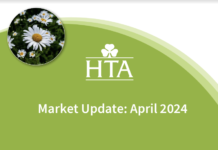With less than three months to go, the UK government is still setting out its plans for trade after it warned that a lack of preparation by many companies could lead to queues of around 7,000 lorries in the southeast of England. It said on Thursday it had identified 10 sites around the country including in the county of Kent – home to the ports of Dover and Folkestone which sail to Calais – in central England and near the ports sailing to Ireland. These 10 planned centres would be used to process customs checks and paperwork for trucks bound for Europe after Brexit and will fine drivers who head to ports without the correct documentation.
In the area of Ashford, near Dover, it has started work on a site in Sevington which may hold trucks if traffic is disrupted, and where goods and declarations could be checked to make sure they are ready to travel. Other sites still require planning permission. In a bid to prevent trucks from clogging the roads of Kent, the government will also introduce a Kent Access Permit which truck drivers must carry to access the main roads to the ports. The government’s latest document on the Border Operating Model said lorry drivers operating in the Kent area but not bound for Europe should also carry paperwork, in a sign of the increased bureaucracy business is likely to face next year.
“With fewer than 3 months to go, businesses need to prepare now for new procedures whether or not we reach a trade agreement with the EU, so that they can seize the significant opportunities that lie ahead,” said Michael Gove, the minister overseeing Brexit planning.
Bord Bia’s Brexit Action Plan provides practical information that Irish food and drink manufacturers can utilise in order to prepare for increased complexity in future trade with the UK. It addresses actions companies should take in two scenarios: a future Free Trade Agreement (FTA) between the EU and the UK (still to be defined as it is currently under negotiation) and No Agreement, whereby the UK and EU will trade on WTO terms.
Bord Bia’s support services, along with other State supports, can be found listed at the end of each chapter. The Supply Chain section of the action plan focuses on the key actions that Irish food and drink manufacturers can take in order to get a better understanding of their supply chains and the risks that Brexit poses to them.
The first section, Supply Chain Management, covers activities that your business should be carrying out as part of regular business best practice, such as supply chain mapping, improved purchasing and groupage. The second section, Supply Chain Risk Management, looks at further measures that companies can take to prepare for Brexit, as well as other risk events. This includes advice on mitigation planning, which refers to the different steps
businesses can take to minimise the impact of Brexit. It also looks at contingency planning, which are the plans that would be enacted when a risk event occurs.
To learn more please visit Bord Bia’s Brexit Action Plan: Supply Chain page
What’s next – Key Dates:
15th – 16th October: Meeting of the European Council
Nov-Dec: Potential period for ratification of a deal and preparations for implementation OR scaling up of UK readiness to trade on WTO terms.
31st December: Transition period ends and UK reverts to trading on WTO terms if no deal is secured.
1st Jan 2021:
– NI Protocol comes into effect
– Phased UK Border Operating Model comes into effect – detailed record keeping required and declarations/tariffs (can be deferred up to 6 months)
1st Apr 2021: Introduction of SPS controls
1st July 2021: Full customs and SPS border controls in place










